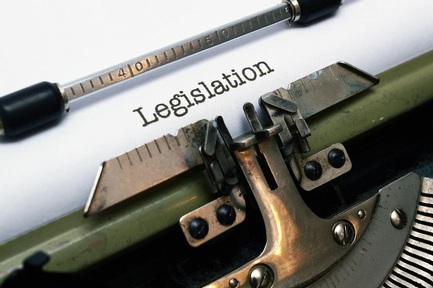Care homes could be missing out on money due to unclaimed tax relief
Care home owners could be missing out on tax relief known as capital allowances due to a lack of knowledge about how and when people can benefit from the measure.

Capital allowances can be claimed when a property is bought that includes assets such as equipment, machinery and fixtures, with owners able to deduct the value of these items from any profits made before having to pay tax. If a care home is being sold with fixtures included such as hoists, profiling beds or specialist dementia equipment, its owner could be missing out on high amounts of tax relief despite being able to find out if they qualify for rebates or future tax reductions.
An estimated £2.1bn in unclaimed tax relief has been lost this way by businesses throughout the UK according to , a UK-wide capital allowances specialist helping business owners to understand and successfully claim back money when selling or buying properties.
Catax Solutions is urging any care home owners to discover whether they are entitled to reductions or a tax rebate in order to ensure they benefit from the tax relief available to them when selling a care home property.
Recent research by Catax has revealed an inconsistent approach to tax allowances taken by solicitors with many not fully understanding capital allowances legislation and not being aware of their responsibility to their client in this area. Mark Tighe, managing director at Catax, said: “There is no doubt that there is an acute need for a greater awareness of this complex tax area and, in particular, its effect on transactions and the extent to which solicitors are compliant.
“Solicitors have a specialist role just as GPs have a duty of care towards their patients. As the legal counsel, a solicitor plays a pivotal role in guiding a client when intending to buy or sell a commercial property. This means the solicitor has a duty to be aware of capital allowances. Remaining silent, and failing to alert clients of these new rules, could certainly bring their professionalism into disrepute.”
As well as care homes, business properties such as B&Bs, dentists practices and warehouses can be missing out on the relief that appears to be often forgotten by law professionals and not known about by business owners negotiating this complex area of property law.
Despite being an obligation of solicitors since April 2014, many maintain the belief that it is not their responsibility to assess capital allowances, instead suggesting the responsibility lies with the buyer themselves or with their accountant.
Research found that 45 per cent of solicitors were either acting in compliance or leading the way with capital allowances assessments, 37 per cent of solicitors felt that capital allowances was not their responsibility and 18 per cent of solicitors felt they needed more information before being able to ensure compliance with new capital allowances legislation.
Reflecting on the latest research, endorsed by the Law Society, Ian White, chair of the Law Society Property Section, said: “To a large extent this recent research confirms what the profession has always known, namely that our understanding of capital allowances has been sadly lacking. We should take steps to ensure that we are advising our clients fully and properly in these areas and that clients and ourselves as practitioners benefit from ensuring best practice. The Property Section is committed to ensuring that the education which the research shows to be necessary is promoted and that this important area of our work is highlighted.”
Any care home owners keen to find out whether they are entitled to a tax rebate through capital allowances can visit: www.cataxsolutions.com
Latest News Analysis
 04-Sep-19
Extra £1.5 billion announced for social care in Chancellor's Spending Review
04-Sep-19
Extra £1.5 billion announced for social care in Chancellor's Spending Review
 02-Jul-19
Department of Health forced to rethink care homes' nursing rates after legal challenge
02-Jul-19
Department of Health forced to rethink care homes' nursing rates after legal challenge
 18-Jun-19
Overnight care workers forced to sleep in offices and told 'bring your own bedding'
18-Jun-19
Overnight care workers forced to sleep in offices and told 'bring your own bedding'
 14-Jun-19
Back in the closet: Third of care home staff have had no LGBT+ awareness training
14-Jun-19
Back in the closet: Third of care home staff have had no LGBT+ awareness training
 11-Jun-19
PM candidates on social care: Rory Stewart calls fixing care an 'unfinished revolution'
11-Jun-19
PM candidates on social care: Rory Stewart calls fixing care an 'unfinished revolution'